
Freight forwarding is a vital component of global trade, involving the movement of goods across different countries and continents. To ensure the smooth execution of logistics operations, reliable communication plays a pivotal role in coordinating various stakeholders and facilitating efficient supply chain management. In this article, we will explore the significance of reliable communication in the freight forwarding industry.
In the complex network of freight forwarding, efficient coordination is essential to ensure seamless operations. This coordination involves multiple stakeholders, including shippers, carriers, consignees, customs officials, and regulatory bodies. By establishing reliable communication channels, the flow of information can be facilitated, allowing for effective planning and execution of transportation activities. Timely exchange of information avoids disruptions and missed deadlines, enabling all parties to work in harmony towards a common goal.
Reliable communication in freight forwarding is crucial for enhancing supply chain transparency. By sharing accurate and real-time information, stakeholders can gain visibility into the movement of cargo, ensuring its traceability throughout the transportation process. Additionally, effective communication enables the proper exchange of documentation and compliance-related information, ensuring regulatory requirements are met. This transparency facilitates informed decision-making by identifying potential bottlenecks, optimizing logistics operations, and mitigating risks.
In the dynamic world of freight forwarding, challenges and conflicts can arise unexpectedly. Reliable communication plays a vital role in addressing these issues promptly and effectively. Whether it’s handling unexpected delays or route changes, resolving customs or documentation issues, or managing disruptions to the supply chain, effective communication allows stakeholders to respond quickly. Through clear and open lines of communication, alternative solutions can be explored, ensuring minimal impact on operations and maintaining customer satisfaction.
Ensuring Customer Satisfaction and Loyalty
Customer satisfaction is a key driver in the freight forwarding industry, and reliable communication plays a crucial role in achieving it. Proactive and transparent communication keeps customers informed about the status of their shipments, providing real-time updates and addressing any concerns or inquiries they may have. By consistently delivering accurate information and meeting customer expectations, strong relationships and trust can be built, leading to customer loyalty and repeat business.
In the highly regulated environment of freight forwarding, compliance with regulations and standards is paramount. Reliable communication ensures the accurate exchange of documentation, reducing the risk of errors or omissions that may lead to penalties or legal complications. Additionally, effective communication enables stakeholders to manage risks effectively. By sharing information regarding cargo specifications, handling instructions, and special requirements, necessary precautions can be taken to ensure the safe and secure transportation of goods. In the event of emergencies or accidents, prompt communication allows for quick response and mitigates potential damages.
In the fast-paced world of freight forwarding, challenges and disruptions can arise unexpectedly. Reliable communication serves as a crucial tool in addressing these issues promptly and effectively. Whether it’s handling unexpected delays, adapting to route changes, or resolving customs and documentation complications, effective communication channels enable stakeholders to respond swiftly. By proactively communicating alternative solutions and maintaining open lines of dialogue, disruptions to the supply chain can be minimized, ensuring operational continuity.
In the world of freight forwarding, reliable communication is the cornerstone of efficient and successful operations. It enables stakeholders to coordinate effectively, enhance supply chain transparency, solve problems promptly, ensure customer satisfaction, and manage compliance and risks. By prioritizing clear and effective communication, freight forwarding companies can optimize their operations, deliver exceptional service, and stay ahead in a competitive industry.
Yes! The Reports can export to PDF format, Excel, Word Format etc.
Yes! B/L print outs can be taken in a Single click
Freight forwarders provide their customers with a range of services including consolidation, documentation, freight payment and customs clearance. The service is offered by freight forwarders who serve as an intermediary between the shipper and the forwarder’s transportation network.
The world is calling, but the struggle with complex international exports can be overwhelming. Shipping software allows you to:
Optimize systems: Automate operations, expand productivity, and increase accuracy.
To achieve global ordering: Track inventory in real time; compatibility with global networks; and make decisions based on data.
Enhanced customer service: Respond quickly, provide clear information, and rise above language issues.
Choose the right freight forwarding software to open your company to global growth.
Choosing the right freight software is like choosing your superhero gear – it empowers you to handle complex logistics and soar to new heights. Here are some basics to ensure your software is a real winner:
Effortless Shipping: Imagine recording, tracking and reporting on shipments with a few clicks. Your software may simplify these processes, freeing you up to focus on bigger things.
Simplified bookkeeping: Creating accurate quotes, invoices, and report cards is unlike paper invoices. Look for software that simplifies paperwork and keeps everything organized.
Strong customer relationships: A robust CRM system in your software allows you to manage customer interactions, send personalized communications, and foster strong relationships – the foundation of any successful business.
Data push decisions: Your software program can be your own record analyzer. Look for features that provide insightful analysis of overall performance, identify trends, and empower your company to make informed choices.
Easy conversation: Does your software play well with others? Integrating accounting, CRM and visit management systems improves information flow and eliminates accounting silos – a huge win for efficiency
By installing those essential components, you equip your logistics with the software muscle needed to overcome any system challenges and achieve breakthrough success
A quantity of steps are worried in integrating and employing freight forwarding software program (CargoNet) inside your commercial enterprise, these encompass:
Evaluation and Planning: Assess the existing freight forwarding processes in your organisation and discover regions to be stepped forward. Establish your precise requirements and dreams for imposing CargoNet software program application. Develop a plan of implementation along with timeframes, sources and key individuals.
Customization and Configuration: Collaborate with our implementation group in order to personalize the software program in line with the workflows or processes used by your very own organization. Set up configurations, user privileges, in addition to connections to other systems employed across your business enterprise.
Data Migration: Prepare your present day Freight Forwarding statistics for migration into CargoNet. Make certain that statistics is accurate and sound by way of purging it off old data even as formatting it efficaciously



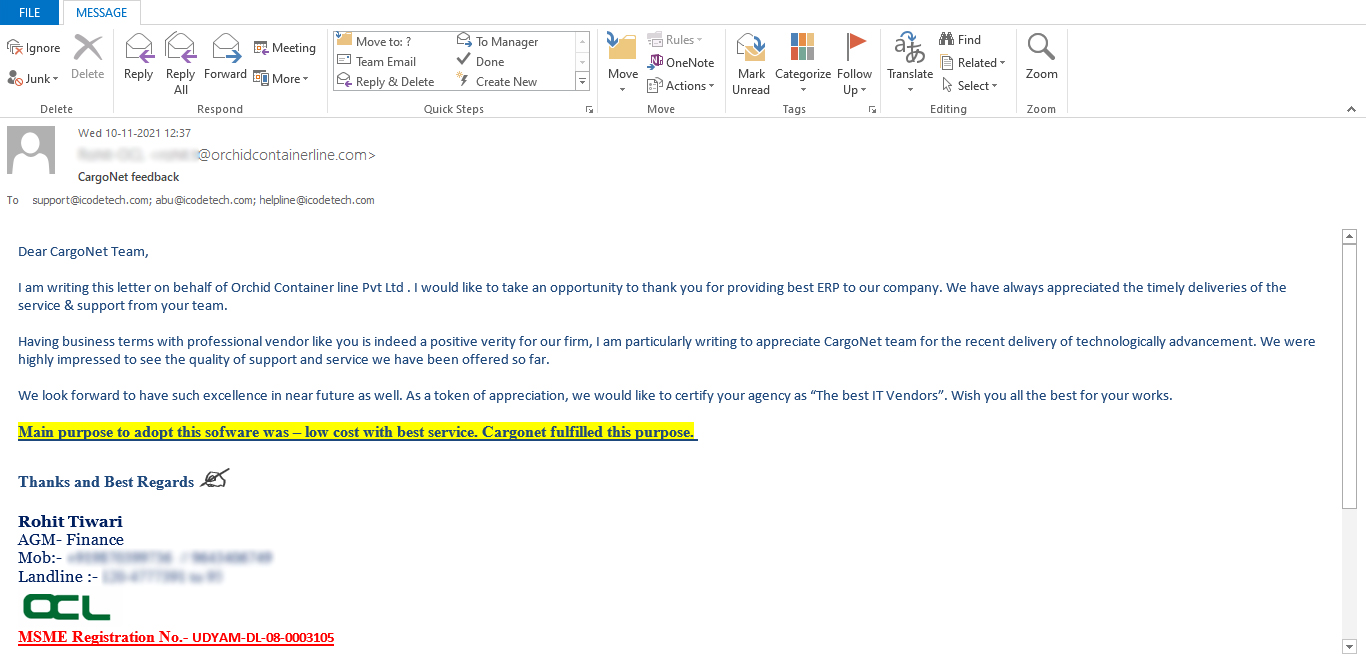
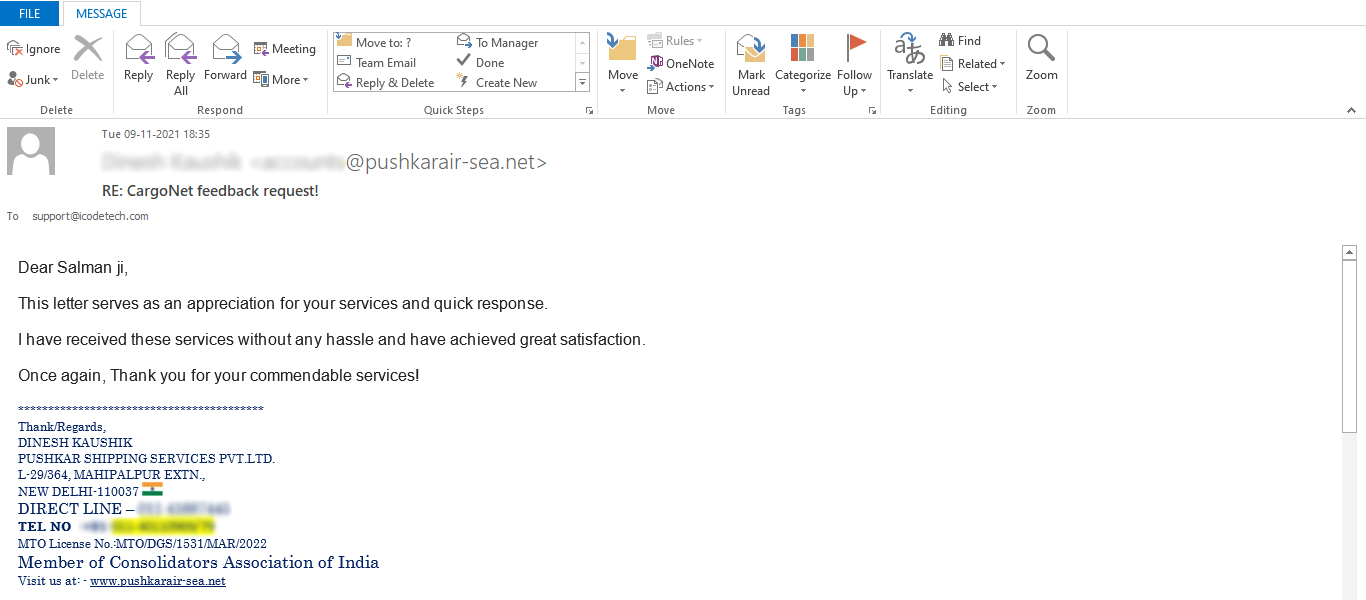
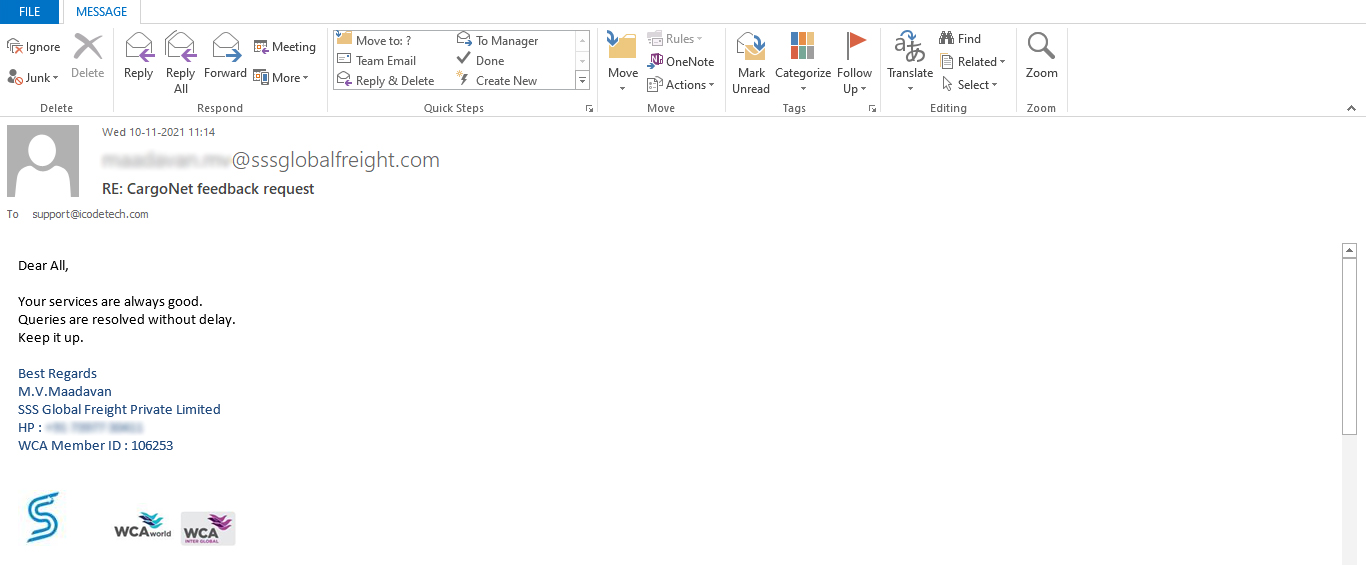
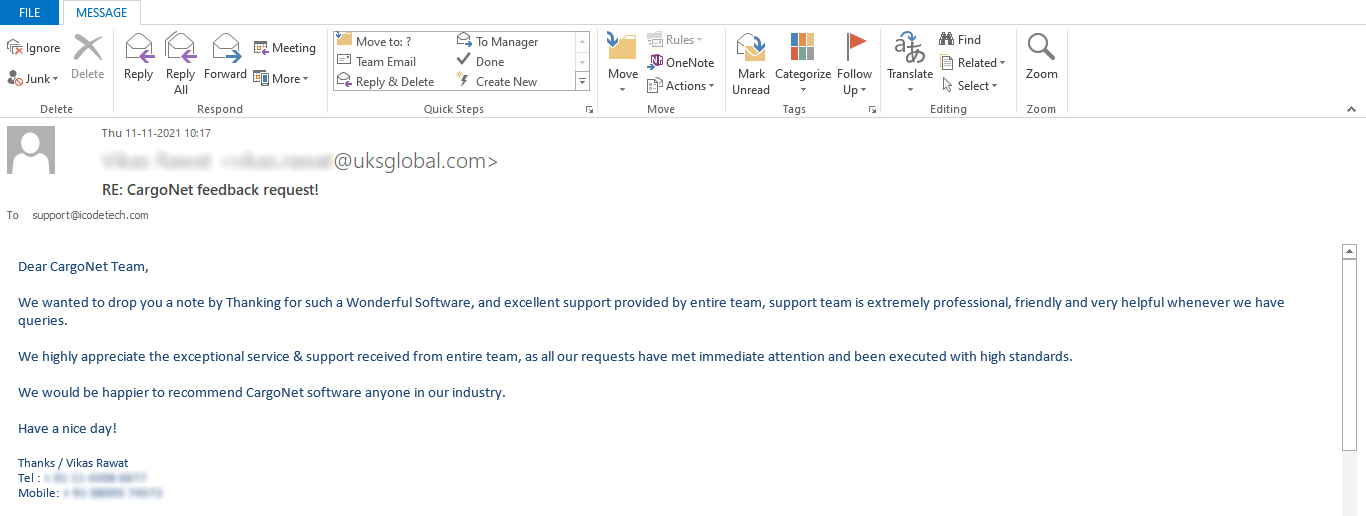
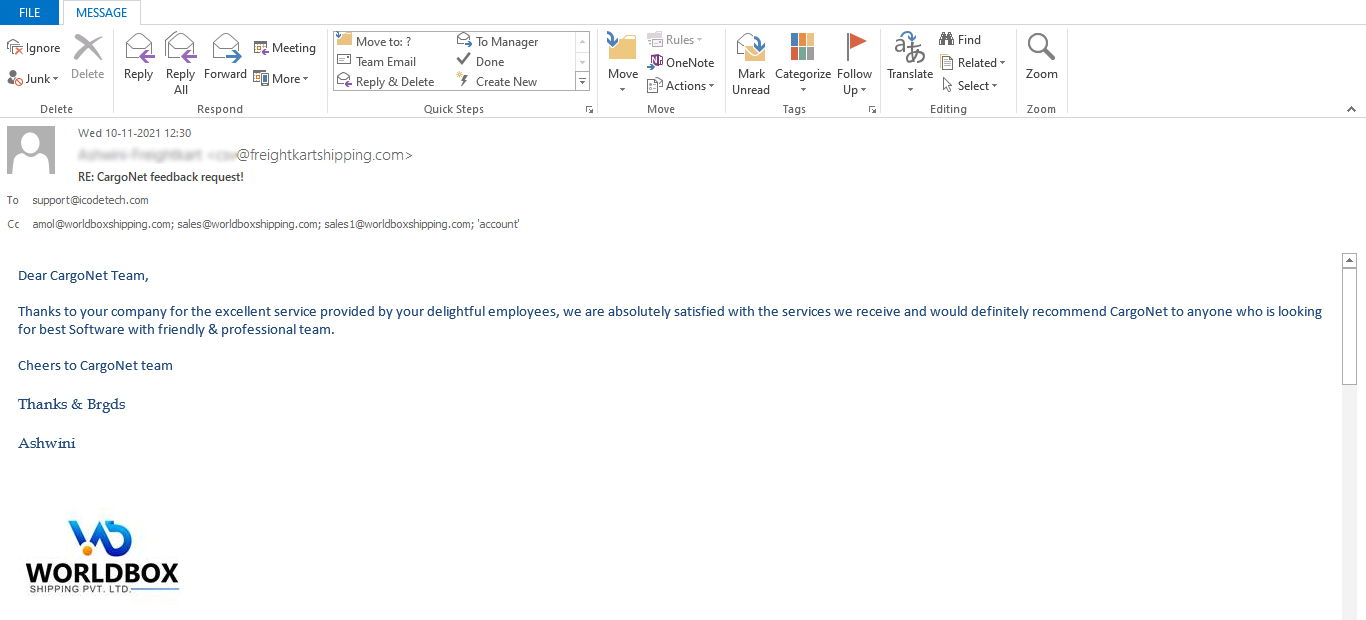
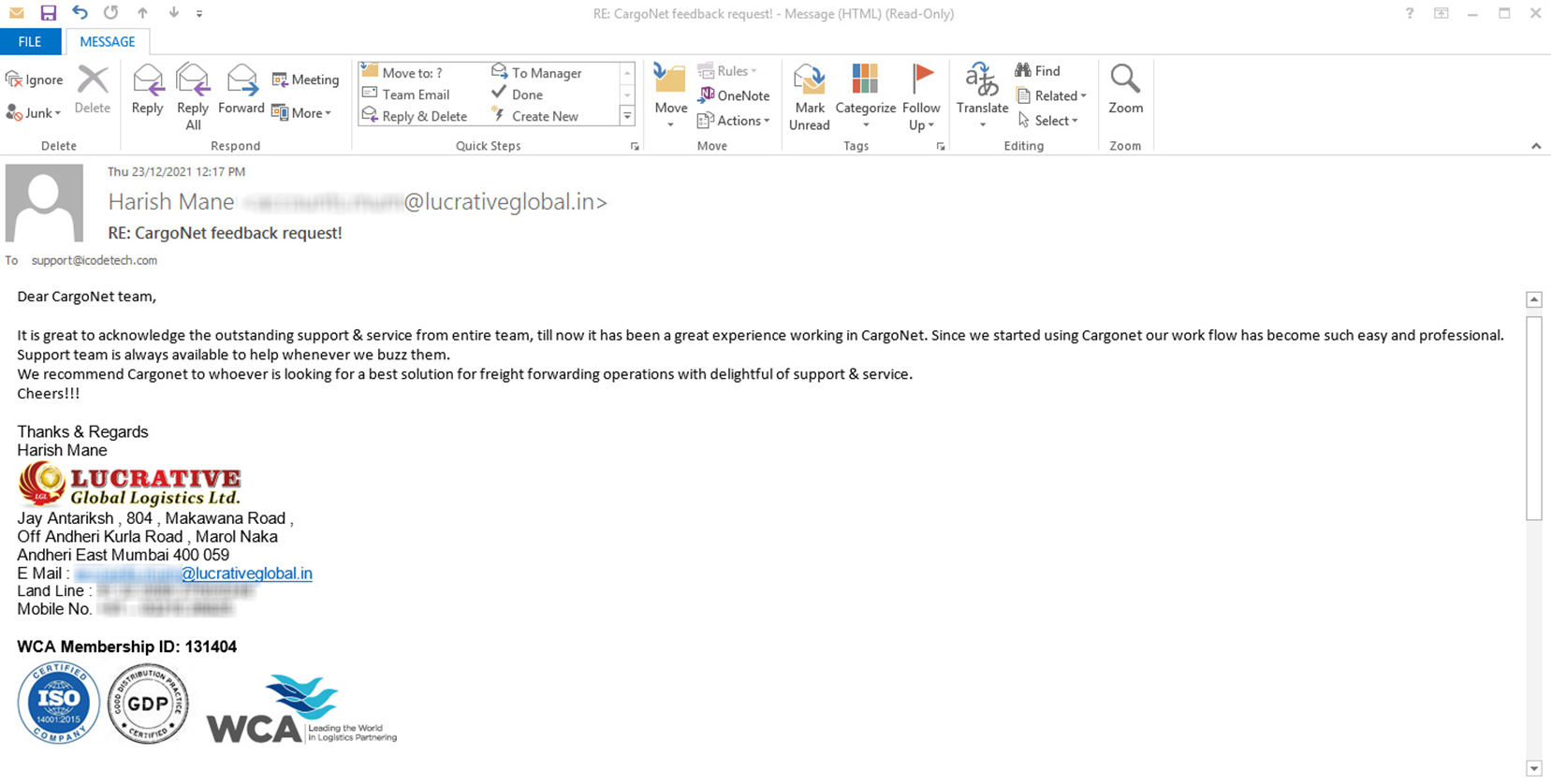



Share your information for instant access :